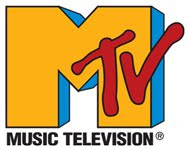 A few days ago was a non-event that might have been a big deal once: the 30th anniversary of the start of MTV. Once upon a time, MTV changed the face of music, for good or ill (or both). But now...
A few days ago was a non-event that might have been a big deal once: the 30th anniversary of the start of MTV. Once upon a time, MTV changed the face of music, for good or ill (or both). But now...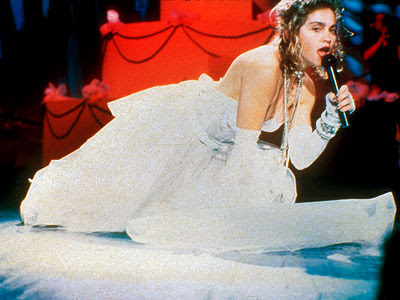 Back on August 1, 1981, the cable channel MTV launched with a simple goal: play short videos made by musicians, for 24 hours a day (minus commercials). There were VJs --"video DJs" -- Nina Blackwood, Mark Goodman, Alan Hunter, J.J. Jackson, and Martha Quinn to introduce and discuss the videos.
Back on August 1, 1981, the cable channel MTV launched with a simple goal: play short videos made by musicians, for 24 hours a day (minus commercials). There were VJs --"video DJs" -- Nina Blackwood, Mark Goodman, Alan Hunter, J.J. Jackson, and Martha Quinn to introduce and discuss the videos. 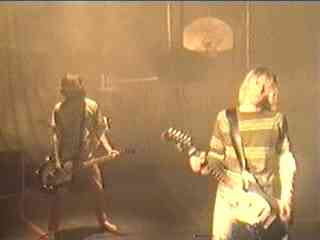 And the videos came in a flood, creating trends, stars, and controversy. Madonna wore her underwear on the outside (not in the superhero sense) and began a career of generating more and more controversy with each video. Run-D.M.C. and Aerosmith smashed through a wall to "Walk This Way," bringing rap to mainstream America and Aerosmith to a post-1970s fanbase. Boy bands N*SYNC and New Kids on the Block strutted their well-synchronized dance moves in each video. Debbie Gibson didn't have an album, but she did have a video for her song "Only in My Dreams." And Michael Jackson's videos made the one-gloved look and the moonwalk known in every home whose cable owners proclaimed "I want my MTV!"
And the videos came in a flood, creating trends, stars, and controversy. Madonna wore her underwear on the outside (not in the superhero sense) and began a career of generating more and more controversy with each video. Run-D.M.C. and Aerosmith smashed through a wall to "Walk This Way," bringing rap to mainstream America and Aerosmith to a post-1970s fanbase. Boy bands N*SYNC and New Kids on the Block strutted their well-synchronized dance moves in each video. Debbie Gibson didn't have an album, but she did have a video for her song "Only in My Dreams." And Michael Jackson's videos made the one-gloved look and the moonwalk known in every home whose cable owners proclaimed "I want my MTV!"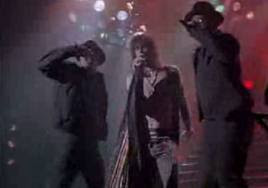 The music video format became more and more popular (I remember Tower Records having a wall filled with vhs tapes featuring the music videos of the most popular musicians), and the network offered shows for different genres: alternative (120 Minutes), rap (Yo! MTV Raps), metal (Headbanger's Ball). MTV Unplugged had some of the biggest bands going acoustic for an evening. Total Request Live gave a rundown of the top videos each week, along with interruptions by screaming fans. "Weird Al" Yankovic took control of the network a few times, turning MTV into Al TV. And the Video Music Awards offered performances along with the awards for videos, with the former often more significant than the latter.
The music video format became more and more popular (I remember Tower Records having a wall filled with vhs tapes featuring the music videos of the most popular musicians), and the network offered shows for different genres: alternative (120 Minutes), rap (Yo! MTV Raps), metal (Headbanger's Ball). MTV Unplugged had some of the biggest bands going acoustic for an evening. Total Request Live gave a rundown of the top videos each week, along with interruptions by screaming fans. "Weird Al" Yankovic took control of the network a few times, turning MTV into Al TV. And the Video Music Awards offered performances along with the awards for videos, with the former often more significant than the latter.MTV also delved into what would become its future: non-music shows. Animation hit the network with Liquid Television, which in turn led to cartoons Beavis and Butt-Head (mocking the same videos the network played), Aeon Fluxx, Celebrity Deathmatch and The Maxx. The game show Remote Control introduced America to Adam Sandler and Colin Quinn. And then came the genre that would define the network: reality television. The Real World offered the fantasy of young teens living, fighting, and romancing together in front of the cameras. Punk'd had celebrities playing cruel pranks on each other, Jackass had a bunch of, well jackasses hurting themselves and each other, and The Osbournes offered a comically unflattering look at the family life of a heavy-metal legend.
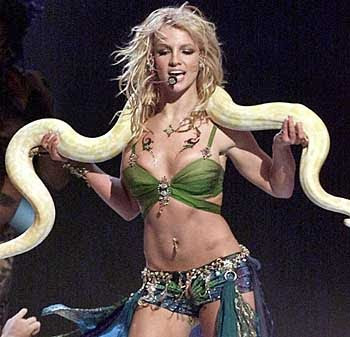 The network drifter away from music, playing fewer music videos and more original shows. Today the network that once promised "24-hour music videos" has 3 hours slated for music -- with lots of commercials and well out of primetime, of course. MTV is defined not by new artists or hot songs, but shows like Jersey Shore and Teen Mom. If you want music videos, you'll do a lot better on YouTube or iTunes, as even stars like Beyonce, Katy Perry, Justin Bieber and Lady Gaga don't have a place on MTV to showcase their latest videos.
The network drifter away from music, playing fewer music videos and more original shows. Today the network that once promised "24-hour music videos" has 3 hours slated for music -- with lots of commercials and well out of primetime, of course. MTV is defined not by new artists or hot songs, but shows like Jersey Shore and Teen Mom. If you want music videos, you'll do a lot better on YouTube or iTunes, as even stars like Beyonce, Katy Perry, Justin Bieber and Lady Gaga don't have a place on MTV to showcase their latest videos.But what impact did MTV have on music? Quite a lot. For a time, having a great/popular video was as important, possibly more important, than having a great song. Some critics claimed that MTV became a network of borderline softcore porn (not a complaint in my book) and shortened the attention span of viewers by offering not albums from an artist, but single songs with lots of quick cuts. My complaint (apart from keeping the "M" in the name when they all but skip any music) is that they offered no sense of history, playing nothing that hadn't come out in the past year or two. And while some musicians used the videos to make up for a lack of talent (I'm looking at you, Spice Girls), some did manage to make very creative mini-movies to go along with their songs: Johnny Cash's moving video of his life for "Hurt," the Beastie Boys' mock-'70s cop show for "Sabotage," Pearl Jam's haunting visuals for "Jeremy," etc.
I'm not surprised that the network didn't have a celebration for their 30th anniversary, given how far they've drifted from the original goal of playing music videos all day. But whether you love or hate music videos (and we all have those we love to watch, and those that make us cringe), there was a time when MTV both defined and redefined popular music.
Written by James Lynch

No comments:
Post a Comment